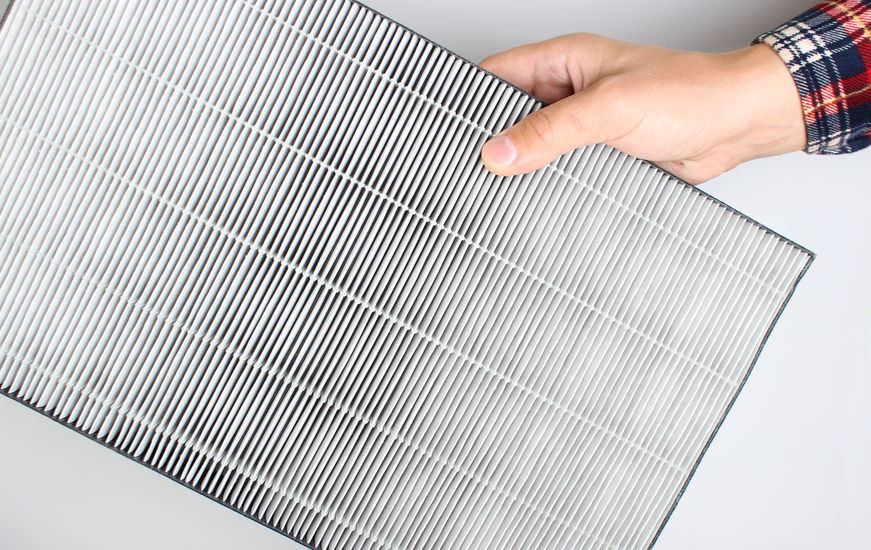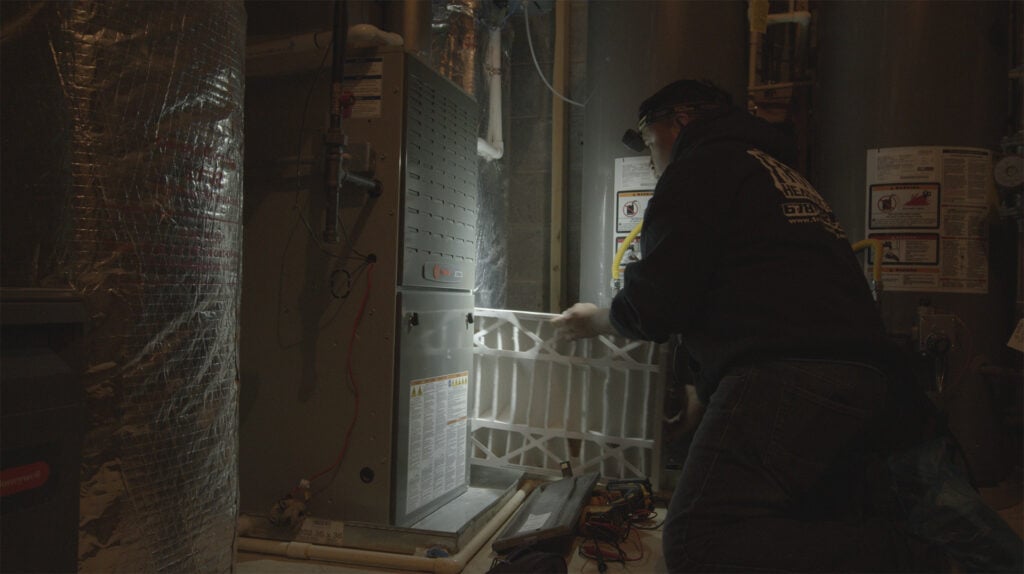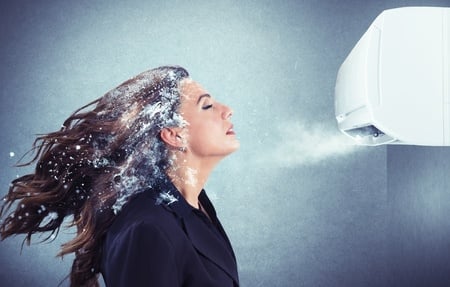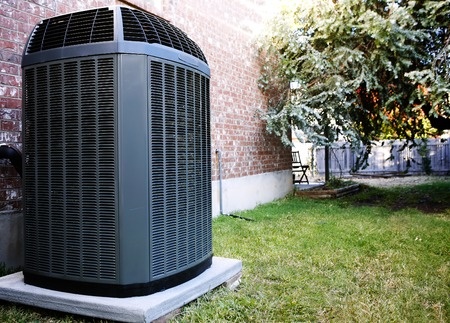Do you suffer from seasonal allergies? When it comes to airborne allergens, like mold, dust, and pollen, one way to improve conditions is to replace the air filters in your HVAC system. This is a simple process that you can have done by your local HVAC professional. Fritts Heating & Air is here to teach you more about HVAC air filters and how changing them can reduce seasonal allergies.
What Are HVAC Air Filters?
HVAC air filters are one of the most important components of your heating and cooling system. Often overlooked, these filters can be the difference in your air quality. Typical air filters look like a large cardboard box, and are usually made of spun fiberglass material framed in a cardboard frame. Air filters can also be made from cloth or pleated paper but your average consumer filter will be cardboard and fiberglass material.
The importance of HVAC air filters is that they catch different kinds of contaminants and particulates. Common pollutants include dust, dirt, pollen, mold spores, fibers, lint, hair, animal fur, bacteria and other microorganisms. Typically, filtration occurs when air is brought back to the HVAC equipment to be conditioned and circulated again. The air then passes through and the particulates and contaminants are removed from it.
Replacing Air Filters
When it comes to your general health, it is important to understand that changing your air filters is vital. Compared to ordinary paper HVAC filters, a HEPA air filter requires more frequent replacement. A Fritts Heat & Air technician can help determine the best replacement schedule based on your equipment and location.
Generally, we recommend changing your HVAC air filters at least once a month. Spring is a prime time to do this. It is easy maintenance and it will get your system ready for more frequent use in the warmer months. Replacing your HVAC filter at the beginning of allergy season allows it to remove the most allergens from your home. If you have severe allergies, it is recommended to replace your filters even more often than that.
Airborne particles come in a range of sizes, most of which you can’t actually see. These particles have the potential to irritate your eyes, nose and throat and affect both your lungs and your heart.
According to the Environmental Protection Agency (EPA), the three most effective ways to reduce airborne particles in your home are by:
- -Removing the source of the particles: Regularly cleaning and dusting surfaces, brushing your pet outdoors, not smoking inside your home and eliminating any potential for moisture buildup.
- -Ensuring proper ventilation: Using properly installed exhaust fans while cooking or using household cleaning products.
- -Air cleaning: Using a medium-to-high efficiency air filter and replacing it regularly, or adding an air purifier to a commonly used space in your home.
Choosing The Right Air Filter & More
Many have a misconception that the most expensive air filter is the best one. This is not the case. Depending on your HVAC system, the air filter can vary. You also need to make sure that your HVAC system is clean. Be sure to schedule bi-annual HVAC maintenance (Spring & Fall) and duct work cleaning every five years. Doing this will prevent dust from building up and over working your system.
Your indoor air can cycle through your HVAC system up to 6-8 times every day. Insufficient maintenance and old unchanged air filters can lead to the build-up of dust, pollen and even mold spores on your equipment. Fritts Heating & Air can help keep your HVAC system in premium shape with regular inspections and maintenance.
Overall, there’s a lot to consider. When it comes to improving the air quality in your home, here are four key takeaways:
- -You must regularly replace your air filter(s).
- -Relying on air filtration alone is not enough. Also take steps to remove the source of household allergens, as well as ensure proper ventilation in your kitchen and bathrooms.
- -An air filter with a MERV of 4 or less will protect your A/C unit from airborne particles, but will not improve your indoor air quality. They generally last two years which is longer than your average air filters.
- -If you have asthma or allergies, you may want to consider purchasing an air filter with the maximum MERV your A/C unit can handle. Another thing to consider is purchasing a UV light system. In many states, consumers can even get a doctors prescription to obtain a UV lighting system.
Call Fritts Heat & Air Today
Fritts Heat & Air has been providing superior HVAC services since our inception in 2008. Our mission is to always provide every client with quality HVAC services, while displaying our dedication to excellent customer service. You can expect prompt service from one of our highly trained HVAC contractors to get your heating and A/C system fixed and working properly as soon as possible. At Fritts Heat & Air, we adhere to high standards and stay informed on the latest industry knowledge. Give us a call today for service!





